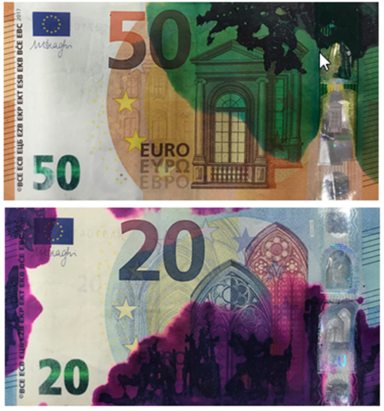L'IRCGN, acteur principal du projet SHUTTLE
- Par Contributeur 380991
- Publié le 20 mars 2018, mis à jour le 13 juin 2023
Le projet SHUTTLE est basé sur le "principe d'échange de Locard". Ce principe est la loi fondamentale de mise en évidence de traces : «Toute action d'un individu, et évidemment, l'action violente constituant un crime, ne peut avoir lieu sans laisser de traces».
L'IRCGN, Institut de Recherche Criminelle de la Gendarmerie Nationale, implanté à Pontoise, est partenaire du projet SHUTTLE, qui bénéficie d'un financement, sur une durée de quarante huit mois, à hauteur de 10,5 millions d'euros reçus d'Horizon 2020, le plus important programme de subvention de la Commission européenne pour la recherche et l'innovation.
The SHUTTLE project is based on the "Locard exchange principle". This principle is the fundamental law of trace evidence: « Any action of an individual, and obviously, the violent action constituting a crime, cannot occur without leaving a trace ».
IRCGN, Criminal Research Investigation Institute of the National Gendarmerie in Pontoise, is partner in the SHUTTLE project, which is receiving for a period of forty eight months 10.5 million euros in funding from Horizon 2020, the European Commission's most important subsidy programme for research and innovation, with 70 billion euros in funding available for allocation up to 2020.
L'Institut est leader dans ce projet, avec le soutien du ministère de l'Intérieur dans lequel on peut également retrouver la Direction de la Coopération Internationale (DCI) et l'Institut National de la Police Scientifique (INPS). C'est le premier projet d'envergure à recevoir un financement via Horizon 2020 au sein du ministère de l'Intérieur.
SHUTTLE est l'abréviation de Scientific High-throughput and Unified Toolkit for Trace analysis by forensic Laboratories in Europe. Les partenaires européens sont : le ministère grec de l'Intérieur, le ministère portugais de la Justice, le ministère israélien de la Sécurité publique, l'Institut forensique néerlandais (NFI) accompagné de l'Université des sciences appliquées de Amsterdam et le Leituvos Teismos Ekspertizes Centras de Lituanie.
Ensemble; ils vont participer au développement d'un appareil de type boîte à outils pour l'analyse des fibres, collectées après les crimes. En effet, l'exploitation de ces fibres, liées au crime, est actuellement difficile, car leur analyse est subjective et chronophage. Une méthode uniforme pour l'analyse de ces traces et le partage des résultats d'analyse sont nécessaires pour pouvoir mener à bien des travaux scientifiques utilisables dans le cadre d'enquêtes criminelles et, par conséquent, permettant de s'attaquer à une plus grande criminalité internationale.
Le projet SHUTTLE, va donc contribuer au développement et à la validation de prototype(s) de la boîte à outils et mener les études scientifiques fournissant ainsi de grandes quantités de données utiles pour la mise en œuvre de la meilleure boîte à outils. En outre, une fois la boîte à outils élaborée, le consortium sera chargé de promouvoir la boîte à outils par le biais de conférences, workshops, ...
The institute is leader in this project with the support of the Ministry of Interior where we can also find the Direction of International Cooperation (DCI) and the National Institute of Scientific Police (INPS). It is the first bigger project to be granted funding through Horizon2020 in the French Ministry of Interior.
SHUTTLE stands for Scientific High-throughput and Unified Toolkit for Trace analysis by forensic Laboratories in Europe. The partners are the Greek Ministry of Interior, the Portuguese Ministry of Justice, the Israeli Ministry of Public Security, the Netherlands Forensic Institute (NFI) accompanied by the Amsterdam University of Applied Sciences (AUAS) and the Leituvos Teismos Ekspertizes Centras from Lithuania.
Together, they will participate to the development of a toolkit for the uniform analysis of fibres collected after crimes. Indeed, the exchange of such crime-related fibres is currently difficult, because the analysis is subjective and time-consuming. A uniform method for analysing these traces and sharing the analysis results is needed in order to be able to conduct international and scientifically supported research in criminal investigations, and consequently tackle more international crime.
The SHUTTLE project, will contribute to the development and validation of the toolkit prototype and conduct scientific studies thus providing large quantities of useful data for the best toolkit’s implementation. In addition, once the toolkit has been developed, the consortium will be responsible for promoting the box through conferences, workshops, ...
Ces contenus peuvent vous intéresser
Quantification rapide d’ADN par fluorimétrie à partir de prélèvements biologiques issus de cadavres et d’objets de références
Mots clés : Quantification ADN - fluorimétrie - DeNovix - Identification...
Article
Étude comparative de rehausseurs des traces papillaires ensanglantées sur support non poreux
Mots clefs Criminalistique - Traces papillaires ensanglantées...
Article
IGSR/OGSR : Étude de faisabilité d'une analyse conjointe
Mots clefsGunshot residue (GSR) - IGSR - OGSR - MEB/EDS - HPLC/HRMS
Article

Mise en évidence par ablation laser couplée à la spectrométrie de masse à plasma induit de marqueurs minéraux entrant dans la composition des encre...
Mots clefsProduits de marquage codés - systèmes intelligents de neutralisation...
Article

Contacter la gendarmerie
Numéros d'urgence
